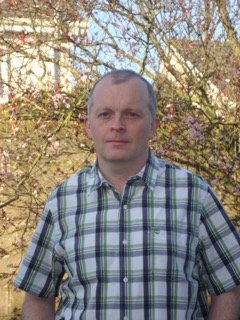Meet the Poet |5| Colm Scully
Colm Scully is a Cork poet whose first Collection ‘What News, Centurions?’ was launched by New Binary Press in December 2014. His poems have been published in periodicals such as Cyphers, Burning Bush 2, Abridged, The Stony Thursday Book, The Poetry Bus and Wordlegs. He won the Cúirt New Writing Prize 2014 and was selected for Poetry Ireland Introductory Series 2014. He has been shortlisted/ commended in a number of other competitions such as The Gregory O’Donoghue Prize 2014. He has represented Cork in Coventry as part of the Twin City Cultural Exchange and collaborates on Film Poems, one of which was shortlisted in the Indie Cork Film Festival Poetry Film competition 2014.
1. Can you tell us a little about your book and the mark you feel it’s trying to make on the poetry landscape? Why did you write it? Do you feel it achieved what you set out to do?
[pullquote] I don’t think you can write a poem aiming for success. It will end up being untrue. [/pullquote] The Poetry landscape is a broad one, as I’ve discovered in the last few years. I think I wrote the book for me, because I feel I have something to say, and this is a vehicle to say it in. If people like it and read it then for me it is a success. It’s another step in my journey as a poet. It’s not really an attempt to make a mark or to a add to a genre. Once you start thinking like that you start moulding your poems to fill a gap, to appeal to a certain audience. I don’t think you can write a poem aiming for success. It will end up being untrue.
The worst was outside the city library in Cork during The Constant Reader Festival. There was a number of us reading to a large crowd. I Thought I had my poem off by heart , but half way through my phone rang. I totally lost concentration, and stumbled and fumbled through the rest of the reading. After, a few people came up to me, slapped me on the back, and shook my hand. I knew it was pity.
I’d have Elizabeth Bishop, Langston Hughes and Michael Hartnett on one side. I like them. I love poets who write in their own idiolect. I’d have Seamus Heaney, Ted Hughes and W.B.Yeats on the other. I’d give out to them for being predictable. They bore me a little.
Currently I have, and I’m not sure what to do with them. Although before my book was published I was worried what my family might think of some of the more personal poems, ones about relatives. The poem I mentioned about my late father for instance. But in the end it was all fine, there was no issue. I think in reality people like to hear about themselves, or close friends being mentioned in poems. It’s a little treat, someone is thinking about you.

